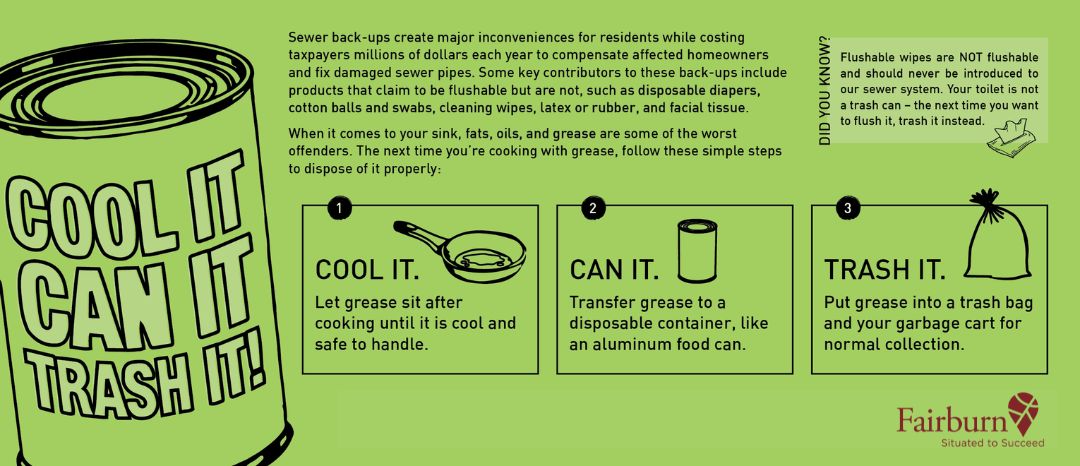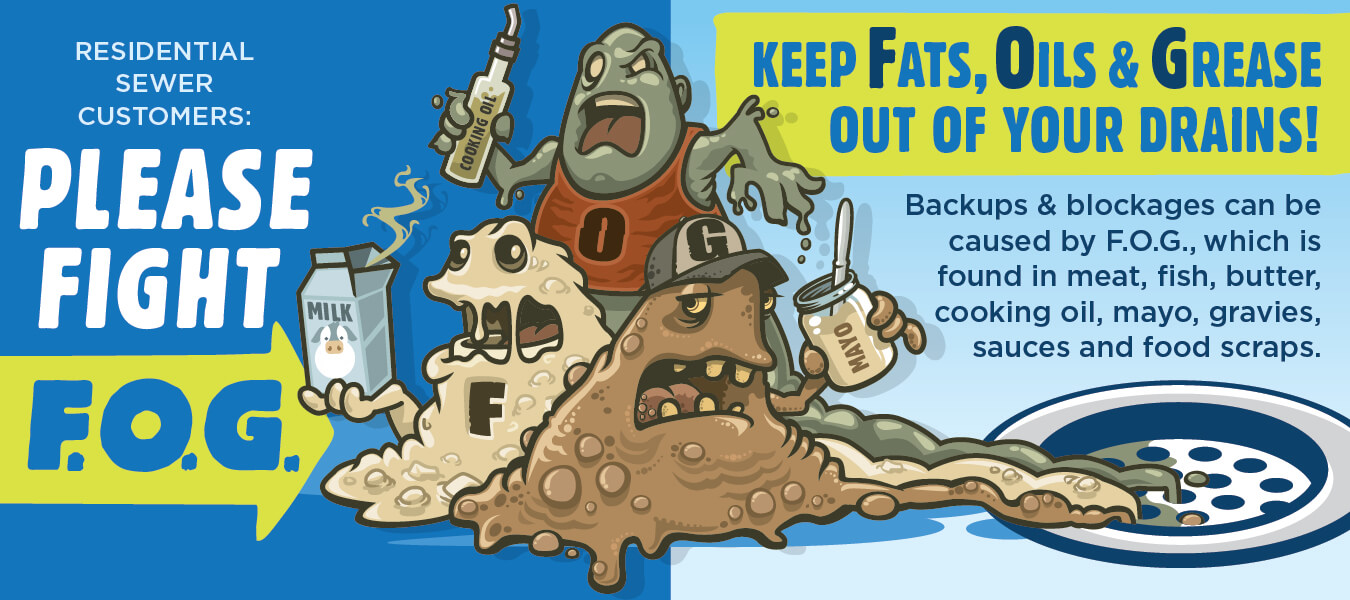Fats, Oils, and Grease: A Silent Threat to Your Plumbing
Fairburn, GA (November 19, 2024)– As the holiday season approaches, the aroma of rich meals wafting from kitchens across metro Atlanta is a sure sign of festive gatherings. But along with the joy of cooking comes a hidden threat that can wreak havoc on your home’s plumbing and the region’s sewer systems: FOG – Fats, Oils, and Grease.
FOG, a byproduct of cooking, is the number one cause of sewer system blockages in the metro Atlanta area, according to local utilities officials. While often poured down the drain with little thought, FOG can cling to the walls of pipes, harden, and build up over time, leading to costly repairs and even environmental hazards.

Every time you pour bacon grease, cooking oil, or leftover gravy down the sink, you’re contributing to a plumbing problem that could escalate into a full-blown crisis. When FOG enters the plumbing system, it doesn’t simply wash away with water. Instead, it sticks to the interior of pipes, creating layers of buildup that narrow the flow of wastewater. Over time, these blockages can lead to sewer backups in homes and neighborhoods.
“The issue with FOG is that it’s often out of sight, out of mind until it’s too late,” said Derek Hampton, Utilities Director. “We see hundreds of sewer clogs every year caused by FOG. It’s not just an inconvenience for homeowners—it impacts the entire community.”
The Impact of FOG Blockages
- Home Plumbing Issues: When FOG builds up in household pipes, it can lead to slow drains, foul odors, and, eventually, complete blockages that require expensive professional repairs.
- Sewer System Damage: On a larger scale, FOG can block municipal sewer systems, causing wastewater to back up into homes, streets, and even waterways, resulting in significant environmental damage.
- Increased Utility Costs: Removing FOG blockages from city sewer lines requires extensive labor and resources, which can drive up utility rates for everyone.
How to Prevent FOG Problems
Preventing FOG-related plumbing disasters starts with proper disposal. Here are some practical steps to keep your pipes—and the city’s sewer system—clear:
- Never Pour FOG Down the Drain: Dispose of fats, oils, and grease in a container, then throw it in the trash once it solidifies.
- Scrape Before Washing: Scrape food scraps and grease from dishes into the trash before washing them.
- Use Strainers: Place strainers over sink drains to catch food particles and prevent them from entering your pipes.
- Educate Your Household: Make sure everyone in your home knows the importance of keeping FOG out of the plumbing.
The fight against FOG requires a collective effort. Utilities Director Hampton emphasized the importance of public awareness: “This is a community problem that requires community solutions. If everyone takes small steps to prevent FOG from entering the system, we can avoid costly repairs and protect our environment.”
With Thanksgiving and other holidays just around the corner, now is the perfect time to adopt FOG-safe habits. The rich dishes we enjoy during the holidays often produce large amounts of FOG, making it even more critical to dispose of it responsibly.
“FOG doesn’t take a holiday,” John Martin, Fairburn Utilities Manager warned. “Whether you’re preparing a festive feast or cooking on a regular, remember that every bit of grease you keep out of the drain helps protect your plumbing and our sewer system.”
